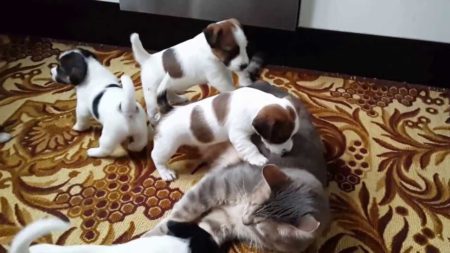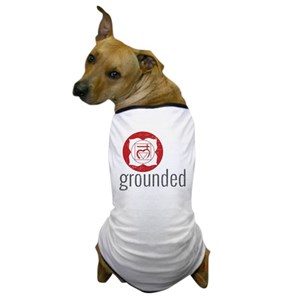Getting a new puppy Part 2 – Remember 3 – 16 weeks!

Remember 3 – 16 weeks
Getting a new puppy Part 2 – Remember 3 – 16 weeks! (Part 1 is here). This critical period of socialisation, is the time when you should ensure your pup is thoroughly socialised and habituated. By the time they are 7-8 weeks, socialising with their siblings and other animals such as cats and rabbits as well as being with their mother, will have taught them more than you realise.
Inhibited Bite
For instance, the ‘inhibited bite’. If a pup bites too hard, his playmate will squeal. Mum will also reinforce the inhibited bite when her pup gets a little too enthusiastic when playing with her. Having a ‘soft’ mouth when playing is vital. Aggression is one of the major causes of dogs being given up to a rescue centre. This can stem from a puppy not knowing how to control his bite and being ignorant of dog body language etc..
Are you a social person?
Once you take your pup home, you must continue with the socialisation process. In fact it should be ongoing for the whole of your dog’s life. Also, your personality can have an impact.
If you are not a very social or outgoing person, you may shy away from company which means your dog will not have the contact he needs. Try and change a little, for the sake of your dog. If you know you are a quiet person, happy in your own company, make a point of walking in busy places sometimes. Going off into the mountains or forests is great, but seeing other people, dogs and animals is really important for your dog. Be aware of his needs as well as your own.
Communication

Learning doggie language is vital for a pup, as well as for the owner. Some things are instinctual, such as the playbow but they do have to practice this language with the help of their siblings in the first instance. Mum will be teaching them right up to when they go to their new home. Socialising with other dogs regularly will finesse this important canine communication. Take time to watch how dogs communicate. It is quite fascinating, especially when you realise what they are saying to each other. Look at this little playbow, a frame taken from a video of our pups playing at just 8 weeks old! You can see this video on the right hand bar.
What to look out for when acquiring a puppy
- Research thoroughly the breed of dog you want. Make sure he suits your personality and your lifestyle. Do you have the right home for the breed you’re looking at?
- Try and see the pup at least twice, once or twice as an intial looksee and the last time to take him home.
- Look around the breeder’s setup. Is there intensive breeding in outhouses and barns. Can you hear barking coming from outbuildings. Does the breeder concentrate on one breed only.
- On the other hand, is there evidence of dog breeding at all, like a whelping area in the home. Has the pup been brought in from another location ie. a puppy farm! Is mother there with her other pups?
- One ruse is to rent a house to bring pups to, for a prospective buyer to see. Look out for this. There should be evidence of it being a family home with mother and pups living there. Look for clues and be suspicious.
- On an initial visit, say at 6 weeks old, the pup should be with its mother. Ask if father is available to see as well. If you choose a pup, take a picture to make sure that’s the pup you get.
- Take particular notice of the mother and father’s personality. Are they calm and friendly or do they show signs of fearfulness or anxiety. These traits will often be transferred to offspring.
- Ask questions; take a list of questions so you don’t forget what to ask. Ask if you can have details of an adult dog previously bred. A breeder will have details of sold pups and often keep in touch with the owners. It is a good idea to see the adult version of the pup anyway. The adult dog may be bigger or look different to what you envisaged.

- More importantly, be grounded. Don’t be sucked into taking any pup home. Pick the breeders brains. they should be au fait with everything about the dogs they breed. If they seem a little vague, be suspicious. Ask about illness traits in the breed.
- Lastly, check out the pup you’re interested in. Is he lively, inquisitive and friendly. Does he look healthy with a shiny coat. Does he have fleas. Check for discharge from eyes, nose, ears and genitalia. Has he got an under or overshot jaw. Does he show signs of shyness or fearfulness. Is he willing for you to handle him without struggling or vocalising. Touch his paws, body, ears, tummy etc. He shouldn’t be too worried about the contact. The pup should be happy for you to hold him. Watch how he interacts with his siblings. Is he bossy or is he timid. Somewhere inbetween would be ideal.
Please note, I myself did not check all the points above. Hence we acquired 2 little pups that were not properly socialised by the time we had them at 8 weeks. Bandit was showing the signs as soon as we got him home. We took both pups to a puppy socialisation class as soon as vaccinations were done. Bandit showed fearful signs as soon as we put him on the ground. He just stood between our feet, paralised with fear, not wanting to move. Jazz, on the other hand was much more outgoing, in fact he was very sociable and played with all puppies big and small. He was tiny but quite happy to approach a German Shepherd pup without any fear. I really think Jazz is from a different litter to Bandit.

Check out the PDSA website which will give you more advice on what to look out for when getting a new puppy. Be aware that puppy farms will not necessarily sell dogs from where they are bred. As I mentioned above, they are known to hire out residential properties and feign a family household. They will often use a ‘fake bitch’ supposedly the mother of the puppies. Check her out and make sure she has recently had pups. How does she interact with the litter you’re looking at. At all times be suspicious. If you are fooled into buying a puppy farm dog then you will be supporting the suffering of these poor animals. The breeders having no compassion or empathy with their ‘stock’. The bottom line is the money, that’s all they care about. This disgusting trade needs to be stopped and the perpetrators severely punished and banned from keeping animals for life.
Cardiff Court Case
This is a court case where a breeder, Lisa Canning trading as ‘4 Small Paws’, proved to be a front for puppy farms. She also overbred her own animals causing distress and maltreatment. Canning made £50,000 from mis-selling pups, some of which were proved not to be the breed they were sold as, at extortionate prices. She also was selling dogs through such websites as Pets4Homes, Preloved Pets and Gumtree.
At her court case his Honour Judge Crowther QC said:
“It wasn’t simply failure to not have regard to a licence, you took other measures to avoid conditions. This was a front for puppy farms and a conduit through which those maligned businesses operate. This wasn’t a victimless crime; the harm is that you play on people’s emotions, children especially.”
Canning was sentenced to 30 weeks on five counts, suspended for 2 years. Also 20 weeks of unpaid work to be completed within 12 months and a 4 months night time curfew. Canning was ordered to pay a total of £46,595 in costs, compensation of £3095 and a victim surcharge.
 Please be diligent
Please be diligent
I sincerely hope this has given you some idea of how you can be duped into buying a puppy farm animal. Don’t buy if you are suspicious, but do report your suspicions to the proper authorities. Breeders will not mind being checked out, if they are innocent. They want this practice stamped out as much as the rest of us. Many buyers are unknowingly encouraging this horrendous and unlawful practice, operated by cruel, money grabbing, callous villains. Don’t let it be you. Don’t buy your puppy from a pet shop or other middle man. Who knows where those pups have come from. You must see your puppy with it’s mother and siblings. Make this your first rule before you buy.

Wow! So much details has gone into this article and cannot be ignored very easily based on the truth passed here. Getting to make sure that the dog being adopted is truly from a legitimate owner and not just as a result of a greedy breeder is integral too. Also, the period of socialisation you earlier mentioned is very germane to the life of a dog and if not well done, can impact the way the dog behaves all through their stay with us. Getting a puppy is simple but the time and period they stay with us while growing is what shapes our experience with them and develop the bond between us. Thumbs up
Thanks for your input Shelley. It appears you are already au fait with the importance of socialisation. Do you own a dog? If not, you will surely benefit from sharing your life with one!
You see, I must agree with you that buying a dog isn’t like going to a grocery store. There is so much to be considered but not so many people know all this. The issue with socialisation also wentwrong when a friend of mine bought a big she doesn’t understand. Well, she had to return the dog after two days. I guess she didn’t know about the socialisation class. Quite frankly,I’m just learning about it. Tha k you for the tips here and I know just what to do now when getting a new pup. Is there a part 3?
What an upsetting experience for your friend and unsettling for the dog in question. I hope you will find the ideal pup when you decide to share your life with one of these amazing animals. No, there isn’t a part 3 but I will be adding new posts, dealing with many canine subjects. The site is very young and I will be working hard to fill it with important information about dogs and how to live your best life with them. Thanks for your input.